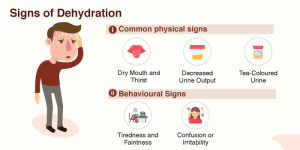
Alzheimer’s disease is a devastating condition that affects millions of people worldwide. While there is currently no known cure for the disease, there are ways to potentially reduce the risk of developing Alzheimer’s. One such way is through maintaining a healthy diet. In this article, we will explore the role that diet plays in preventing Alzheimer’s and how you can make better food choices to protect your brain health.
Understanding Alzheimer’s Disease
Alzheimer’s disease is a progressive brain disorder that leads to memory loss, cognitive decline, and ultimately the inability to carry out everyday tasks. The exact cause of Alzheimer’s is not yet fully understood, but research suggests that a combination of genetic, environmental, and lifestyle factors play a role in its development.
The Impact of Diet on Brain Health
Studies have shown that what we eat can have a significant impact on brain health and cognitive function. A diet high in antioxidants, omega-3 fatty acids, and other nutrients has been linked to a reduced risk of developing Alzheimer’s disease. On the other hand, a diet high in saturated fats, sugar, and processed foods may increase the risk of cognitive decline.
Key Nutrients for Brain Health
There are several key nutrients that have been shown to support brain health and reduce the risk of Alzheimer’s disease. These include:
Antioxidants: Foods rich in antioxidants, such as berries, leafy greens, and nuts, can help protect the brain from oxidative stress and inflammation.
Omega-3 fatty acids: Fatty fish like salmon, mackerel, and sardines are excellent sources of omega-3 fatty acids, which are essential for brain function and have been linked to a lower risk of cognitive decline.
Vitamins and minerals: Adequate intake of vitamins and minerals, such as vitamin E, vitamin B12, and folate, is necessary for maintaining brain health and cognitive function.
Tips for a Brain-Healthy Diet
Here are some tips for incorporating brain-healthy foods into your diet:
Include a variety of fruits and vegetables in your meals, aiming for a colorful plate to maximize the intake of antioxidants.
Eat fatty fish at least twice a week to boost your omega-3 fatty acid intake.
Choose whole grains over refined grains to provide sustained energy for your brain.
Limit your intake of processed foods, sugary drinks, and foods high in saturated fats.
Stay hydrated by drinking plenty of water throughout the day to support brain function.
Conclusion
While diet is just one piece of the puzzle when it comes to preventing Alzheimer’s disease, making healthy food choices can play a significant role in protecting your brain health. By incorporating nutrient-rich foods into your diet and avoiding processed and unhealthy options, you can support your cognitive function and potentially reduce the risk of developing Alzheimer’s. Remember, it’s never too late to start making positive changes to your diet for the sake of your brain health.
By following these tips and prioritizing a brain-healthy diet, you can take proactive steps towards protecting your cognitive function and reducing the risk of Alzheimer’s disease.

